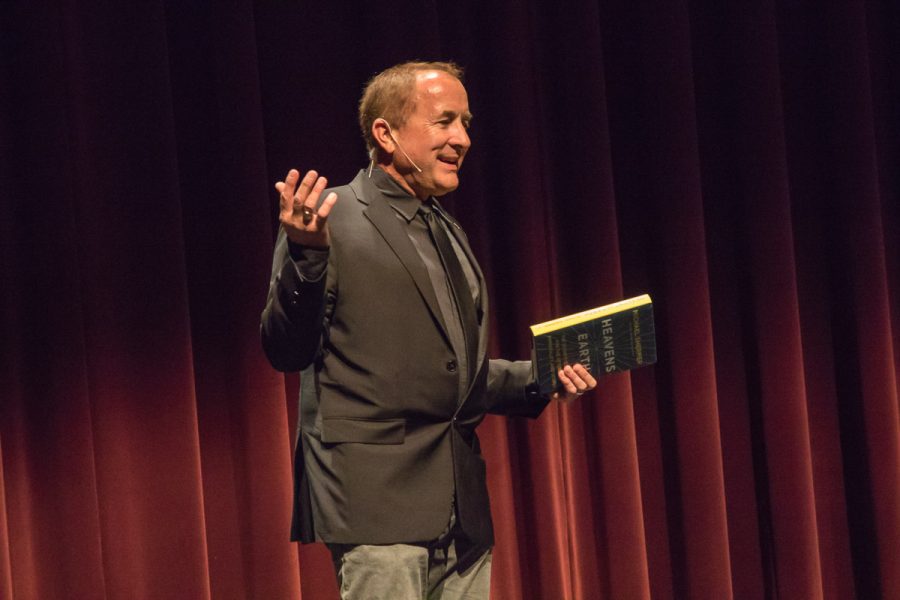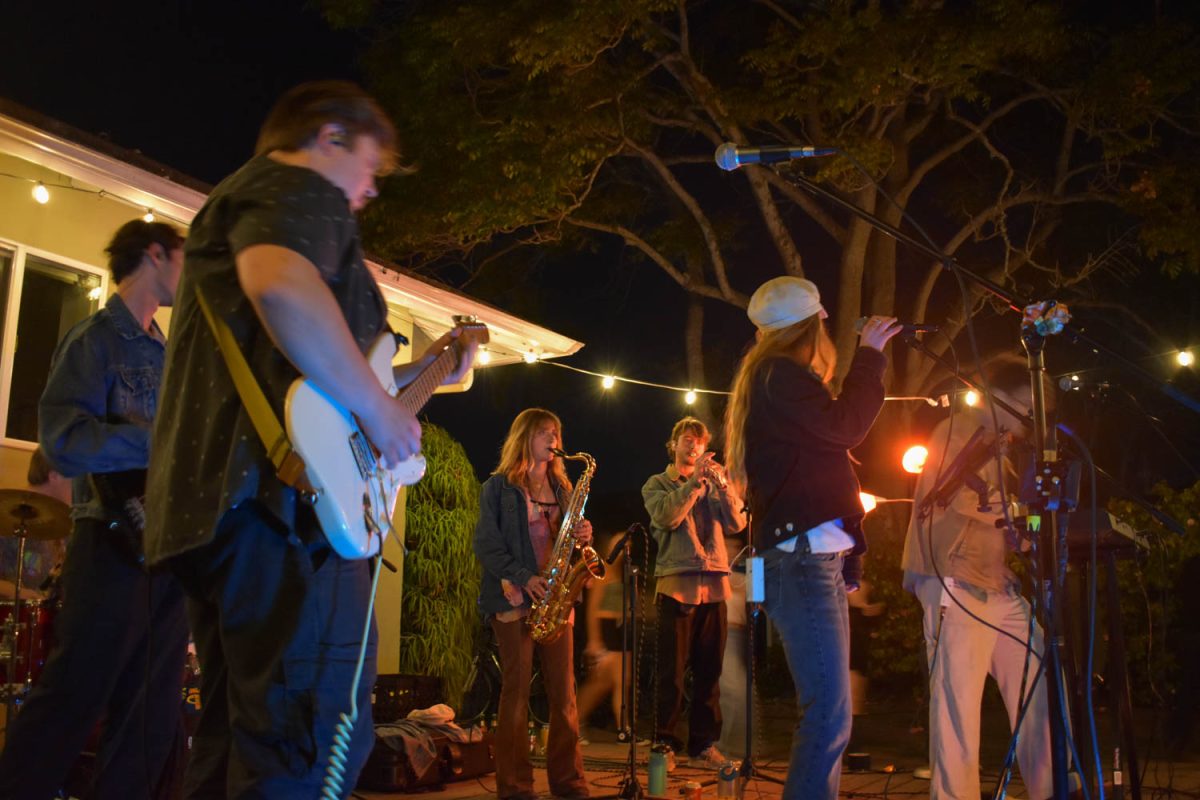Skeptic Michael Shermer debunked ideas about utopia and the afterlife in a City College faculty colloquium at the Garvin Theater Monday night.
Shermer’s new book “Heavens on Earth: The Scientific Search for the Afterlife, Immortality, and Utopia” was published in January of this year. His talk was based on material from the book and covered futurists, life-extension, and believers of heaven and perfect societies.
“There’s a lot of it out there,” Shermer said at the outset, criticizing all varieties of pseudoscience. “Some people call us debunkers, but let’s face it, there’s a lot of bunk that needs debunking and that’s part of our job.”
Now a Santa Barbara resident, Shermer is an author, professor, and founding publisher of Skeptic magazine, a quarterly publication dedicated to investigating controversial science and beliefs. Skeptic’s last issues looked at super intelligent machines and fringe theories on advanced ancient civilizations.
Monday night’s colloquium was moderated by adjunct professor Mark McIntire and sponsored by City College’s Associated Student Government, Phi Theta Kappa Honor Society, and SBCC Critical Thinking Project. The event was held despite some faculty members raising concerns about Shermer’s online allegations of harassment.
One of the topics Shermer covered was cryonics, a field that attempts to freeze bodies in the hopes that they could be revived with more advanced science in the future.
“You know what happens when you defrost frozen strawberries, Shermer said. “It’s just mush. This is not good for brains.”
Shermer argued the technique used for freezing embryos won’t work for brains because they’re much larger, which is a vital difference.
“It’s not impossible,” he said ultimately. “I don’t want to say anything is impossible, but it’s very unlikely that anyone frozen today or probably in this century will ever be brought back.”
This philosophy of “not impossible, but highly unlikely” summed up Shermer’s position on most issues. He was similarly skeptical of diet theories, which he said were the most difficult to tackle from a scientific perspective.
“When you think about it, we’re about to colonize mars and we don’t even know what food to take,” he said.
Shermer dismissed ideas like utopia swiftly, saying they were “based on flawed theories of human nature,” but his conversation went much further in depth at other points.
The talk was at its densest when he attacked “mind uploaders,” which required him to dive into problems of memory and identity.
“I think it’s flawed philosophically. I don’t think it’s you,” Shermer said, concluding that one’s memories aren’t static and that one’s consciousness has to be fixed to their physical body.
Shermer wrapped up his talk by looking ahead and arguing for a science unburdened by unrealistic ideals like utopias.
“We should be looking to make incremental steps of progress,” he said, “where tomorrow is a little bit better than today, today’s a little bit better than yesterday.”










![Milton Alejandro Lopez Plascencia holds a flag showcasing the United States and Mexico on Feb. 7 in Santa Barbara, Calif. “It’s heartbreaking to see what is happening all across the country,” Lopez Plascencia said. “I [want] my voice to be heard by the community.”](https://www.thechannels.org/wp-content/uploads/2025/05/MGSImmigration-1-1200x800.jpg)




